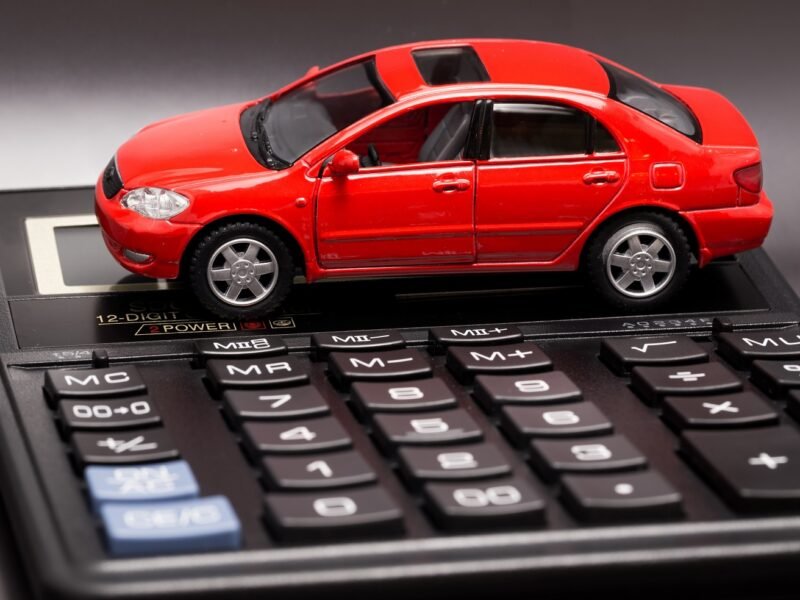Should I Lease or Buy my Car?

Table of Contents
The answer to whether you should buy or lease a new car is one with significant implications. In general, leasing a car comes with much lower monthly costs and will allow you to ‘upgrade’ your ride every few years. On the other hand, buying a car will lead towards your eventual ownership… something that can’t be taken away.
In this article I will go over the pros and cons of leasing and buying a car. By the end, you should be able to tease out which option is for you. I would like to add up front that this blog is geared towards leading folks towards smart financial decisions.
You may not agree with some of what is presented, but I hope the point of view will grow your understanding of the important distinction between buying and leasing a new vehicle.
Initial Cost to Buy
When you buy a vehicle there may be some fees outside of the purchase price such as a doc fee, taxes, and the price of registration. Largely the cost to buy a car up front in cash or with a loan is straightforward. This may not necessarily be the case when you lease a car
When you buy a car, the down payment requirement stipulated by your bank or lending institution will go towards your principal and thus will only help towards your overall ownership of the car.
Leasing a car can include having to pay things such as a security deposit (possibly refundable), fees for acquisition, a sizeable down payment, taxes, registration, and even other fees. Most of these fees are profit for the dealership… they will not be used to help towards your ownership of the car.
Monthly Payments
Assuming that the length of a loan is reasonable (3 years or less), then the monthly payment for the vehicle after the initial costs is likely higher than for a lease. Thus, leases are usually cheaper.
It is possible to manufacture lower payments when buying a car, but it is not recommended. If you were to extend a loan to 5, 6 or even 7 years your monthly payment could end up being lower than a lease but the risk you take on is substantial. The longer the loan term the higher the likelihood of being ‘under water’ on your car loan.
Being under water is when you owe more than the car is worth. Keeping your loan period below 3 years will likely prevent this. When it comes to leasing a car, 3 years is generally the standard length.
Use of the Vehicle
When you buy a vehicle in cash up front the vehicle is yours. You are not limited to what you are allowed to do to it. You can get a paint marker and draw your favorite cartoon characters all over the side or even use hammer to add some ‘texture,’ if that’s what you want to do.
If you buy a car but use a loan from a bank to finance it, then you will be beholden to whatever limitations the bank places on your ownership. Generally, these requirements aren’t too onerous but will likely require you to not intentionally degrade the value of the car… put the sharpie away!
Leasing a car is an entirely different story. The car is not yours. Any upgrades or parts added while you possess the vehicle would need to be removed before you return the vehicle. Any damage or unusual ‘wear and tear,’ as defined by the dealership will likely cost you repair fees.
Ownership
 Very simply if you lease your vehicle then you don’t and won’t own it. This means payments made toward it don’t advance your ultimate acquisition of the vehicle, however we all know that cars depreciate rapidly upon purchase.
Very simply if you lease your vehicle then you don’t and won’t own it. This means payments made toward it don’t advance your ultimate acquisition of the vehicle, however we all know that cars depreciate rapidly upon purchase.
Leasing a vehicle means that you don’t have any downside risk when it comes to the car devaluing.
Leasing a car also allows you the flexibility of finding a new car after your term is up without any obligation. If you are worried about not liking your selected vehicle then no worries, just find a new one after a few years.
That said, the big benefit of buying the vehicle outright is that the vehicle is yours. You can do with it what you please. If you use your vehicle in a utilitarian manner such as me, you could care less about new gadgets and widgets. Owning the vehicle outright means that you are not beholden to a car dealership.
Getting rid of your vehicle, if you bought it, may be more difficult. Instead of just being able to turn it back into the dealership after a few years, you will have to find a way to sell it. Sometimes you can sell it to a dealership but if it’s in poor condition you may have to find a junkyard to take it.
Wear, Tear and Mileage
When you lease a car, you are usually limited to how much you can drive it. You are likely only authorized to drive about 1,000 miles a month. Maybe even less. Additionally, the vehicle may not be overly used in appearance on the inside or outside.
These restrictions may not be a big deal for many, but if you commute for work or other activities you may end up sailing right through the mileage cap.
If you have small kids or need to use the vehicle for construction work, you may end up roughing it up enough to owe substantial repair costs… even if the wear and tear seems normal to you.
Owning the vehicle outright negates both limitations. You can drive it as much as you want and wear out the interior as fast as you’d like.
Does Leasing a Car Make Sense?
 Not usually.
Not usually.
I know that’s harsh but let me explain. Leasing a car is like renting a car for years at a time. The profit margin for the dealership is paid up front and if anything bad happens you are on the hook for making it right.
Alternatively, if you purchased the car then you will eventually own the thing. The profit is less for the dealership (which means you win) and you can do anything with the vehicle that you choose… because it’s yours.
There are some scenarios where if you are a small business owner that leasing a car may make sense to lease a car, but this would be considered more of a ‘tax advantage,’ and it not an advantage born of the lease being better.
Final Thoughts
If a smaller monthly payment is alluring, then looking at a used car may be the way to go over leasing. Buying a vehicle can pay off… literally. Although cars depreciate over time, there is equity to be had. Leasing a car negates this entirely. Buying a used car, although not likely as flashy, is sound financial advice that can help you get the best of both worlds: a low monthly payment along with eventual ownership.
Whatever you choose to do, make sure you do your research. Dealerships are not likely the best place to get your information but there are other excellent resources out there. Check out consumerreports.com for their annual buying guide if you are looking for specific information for new or used models.
Guy Money
As a formally trained Data Scientist I find excitement in writing about Personal Finance and how to view it through a lens filtered by data. I am excited about helping others build financial moats while at the same time helping to make the world a more livable and friendly place.



